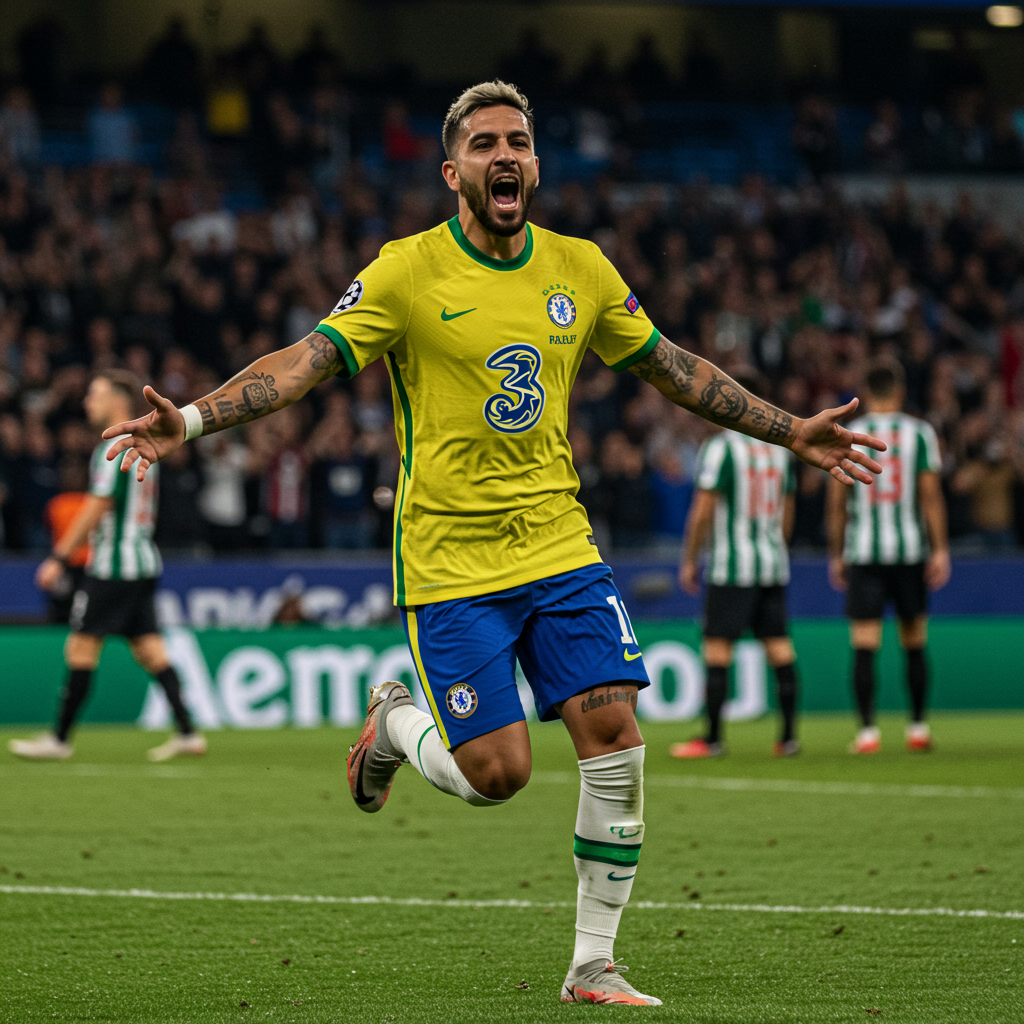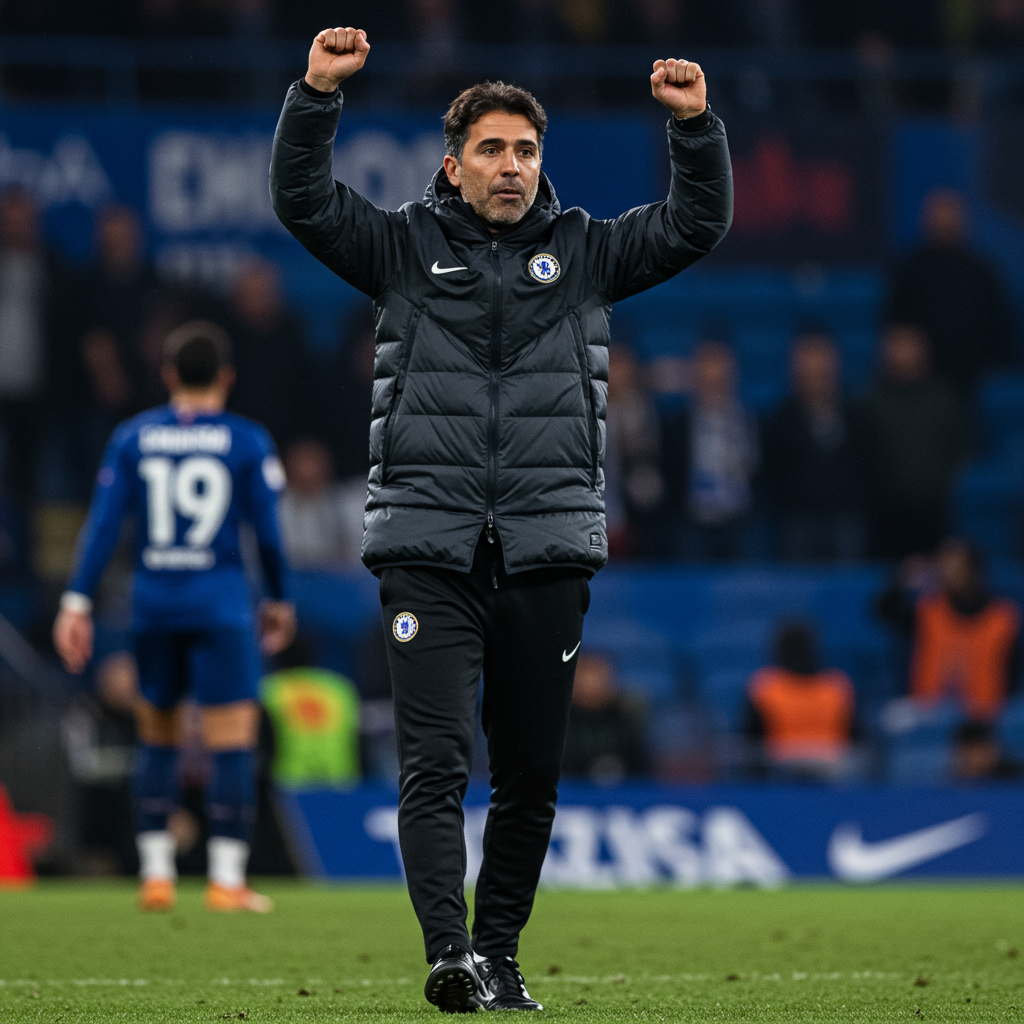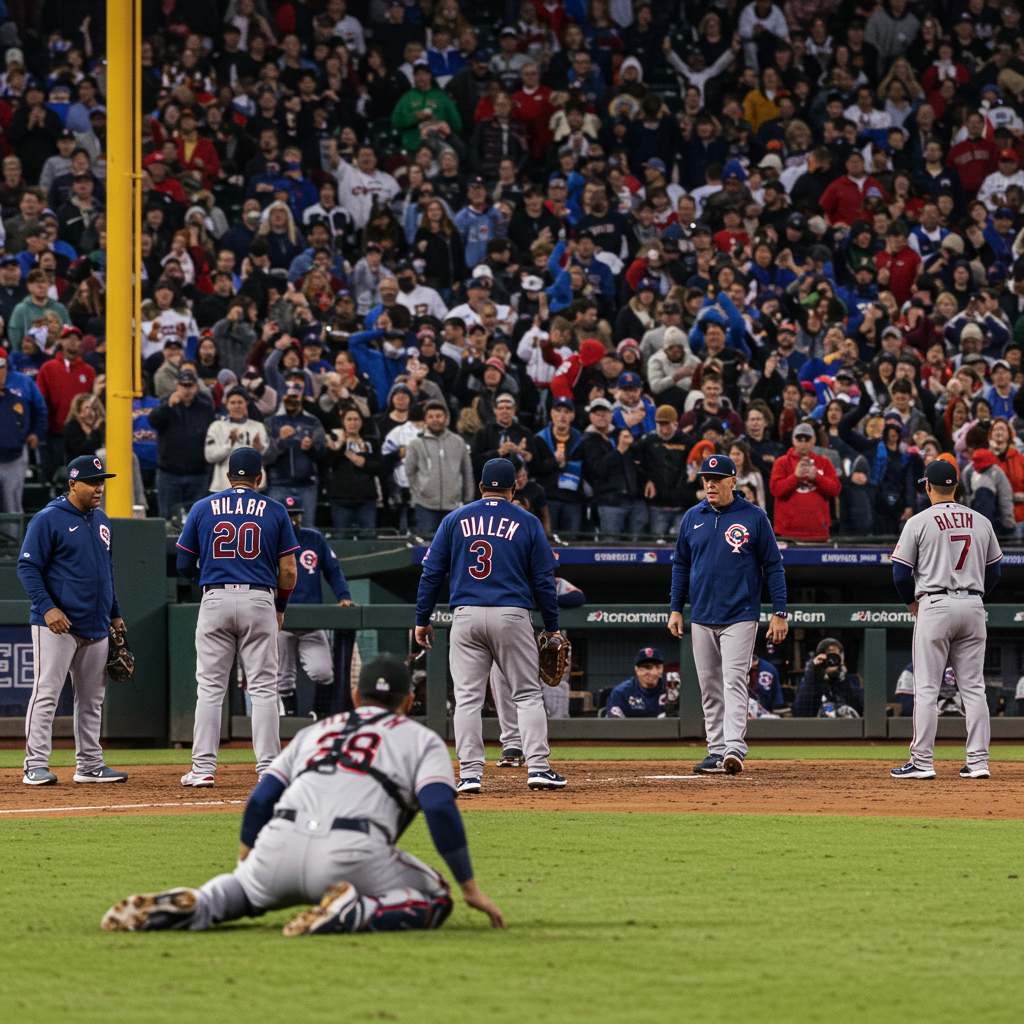In a stunning display just six days after his high-profile arrival, Brazilian forward João Pedro delivered a match-winning performance for <a href="https://news.quantosei.com/2025/07/09/final-2025-mlb-draft-rankings-which-college-ace-is-no-1-in-our-top-250-prospects/” title=”Expert 2025 MLB Draft Rankings: See Top 250 Prospects”>chelsea, scoring both goals in a decisive 2-0 victory over fluminense. This crucial win in the FIFA Club World Cup semifinal, held at MetLife Stadium in East Rutherford, New Jersey, booked Chelsea’s spot in the prestigious tournament final, setting up a potential clash against European giants Real Madrid or Paris Saint-Germain. Pedro’s instant impact has immediately begun to justify the significant investment Chelsea made in bringing him to the club.
João Pedro’s Rapid Integration and Club World Cup Eligibility
João Pedro’s move to Chelsea unfolded swiftly, reportedly finalized for a fee in the region of £60m-£75m ($75m-$82m). This transfer was particularly notable not just for the price tag, but for its timing. Chelsea leveraged a specific FIFA Club World Cup regulation that permitted teams to register up to two new players between late June and early July. Signing Pedro just one day before this deadline allowed them to immediately add him to their squad for the tournament. Coming off the bench in the quarterfinal win against Palmeiras offered a glimpse, but his inclusion in the starting lineup for the semifinal against Fluminense proved to be a masterstroke by manager Enzo Maresca, necessitated in part by the suspension of fellow summer signing Liam Delap. Despite recently being on holiday in Brazil, Pedro had reportedly maintained personal training, ensuring he was sharp and ready when the call came.
The Semifinal Stage: Chelsea Meets Fluminense
The semifinal match pitted European powerhouse Chelsea against a determined Fluminense side from Brazil. Fluminense had navigated an impressive path to reach this stage, emerging as the tournament’s “Cinderella story” after overcoming opponents like Inter Milan and Al Hilal to become the last non-European club standing. The game took place under challenging conditions at MetLife Stadium, with reported temperatures around 35°C in New Jersey adding another layer of difficulty, particularly for the Fluminense squad, which included several aging players. Chelsea, however, appeared composed and in control, demonstrating tactical discipline and depth even without Levi Colwill available.
An Explosive Start: Pedro’s First Goal
The match kicked off with both teams feeling the heat and the pressure of a major semifinal. It didn’t take long for the new Blue to make his mark. Just 18 minutes into his first start for Chelsea, following a loose clearance outside the box, João Pedro seized the moment. Receiving the ball with space, he expertly curled a precision strike towards the far corner. The ball nestled into the net, giving Chelsea a crucial early lead. This was a significant goal, not only opening his account for his new club but also coming against his boyhood club, Fluminense, where he spent eight formative years. Out of deep respect for his history and the fans who supported him there, Pedro notably chose not to celebrate emphatically, instead raising his hands in a gesture of apology towards the Fluminense faithful.
Navigating Challenges and Doubling the Advantage
Fluminense, despite conceding early, showed resilience. They thought they had found an equalizer around the 25-minute mark when Germán Cano’s poked shot beat goalkeeper Robert Sanchez. However, Chelsea defender Marc Cucurella reacted instantly, clearing the ball off the line at the last possible moment to preserve the lead. Minutes later, controversy struck when referee François Letexier initially awarded Fluminense a penalty for handball against Trevoh Chalobah. A lengthy VAR review followed, ultimately leading to the decision being overturned, much to the frustration of the Brazilian side.
These moments seemed to galvanize Chelsea. As Fluminense pushed higher seeking an equalizer, Chelsea found opportunities to counter-attack. It was on one such swift break in the 56th minute that João Pedro struck again. Driving forward with the ball, he unleashed a powerful effort that cannoned off the underside of the crossbar and bounced down into the Fluminense net. This second goal showcased a different facet of his attacking prowess and effectively sealed Chelsea’s passage to the final.
Emotional Reactions and Managerial Pride
Speaking after the game, João Pedro described his two-goal debut as a “dream first start.” The 23-year-old expressed immense happiness but also spoke with mixed feelings regarding the opponent. “I apologize for the two goals. This is my job,” he told FIFA, acknowledging the difficulty of seeing familiar faces at Fluminense upset. He reiterated his love for the Rio-based club and expressed a hope to return one day, highlighting the strong bond he still holds despite his professional obligations to Chelsea.
Chelsea manager Enzo Maresca was understandably proud of his team’s achievement. He praised reaching the final as something to be “very happy and very proud about,” emphasizing the significance of competing against the world’s best clubs. Maresca also touched upon Pedro’s immediate impact, commenting that having players fresh from a break helped bridge performance gaps. He did note a late ankle injury sustained by midfielder Moisés Caicedo, hoping the player could recover in time for the final.
Financial Windfall and Club Ambitions
Beyond the sporting success, reaching the Club World Cup final carries substantial financial rewards for Chelsea. By winning the semifinal, the club added a significant sum to the prize money already secured from participation and their quarterfinal victory. The tournament payout, particularly for reaching the final, amounts to a considerable figure, reportedly totalling over £80 million ($100 million) so far, with more at stake if they win the final. This financial boost is particularly timely for Chelsea, especially considering their current lack of a main front-of-shirt sponsor. Winning the final would also grant them the right to wear the prestigious gold FIFA World Champions badge for the next four years, a symbol of global footballing supremacy. The financial return from the tournament prize money alone represents a substantial portion of Pedro’s reported transfer fee, highlighting the immediate economic validation alongside his sporting impact.
Fluminense’s Respected Run and Managerial Perspective
For Fluminense, the 2-0 defeat marked the end of their impressive Club World Cup run. Despite the loss, manager Renato Portaluppi (Renato Gaucho) felt his team could leave with their heads held high. Portaluppi used his team’s performance as a platform to advocate for greater recognition of Brazilian coaches. He has been a vocal critic of the increasing number of foreign managers in Brazil’s top flight and argued that Fluminense’s transformation and deep run in the tournament demonstrated the quality present within the domestic coaching talent pool. He acknowledged the vibrant atmosphere brought by South American fans to the tournament and the surprise results some teams achieved, highlighting the global talent pool the event showcased.
Looking Ahead to the Final Challenge
With the semifinal hurdle cleared, Chelsea now prepares for the ultimate test in the Club World Cup final. They will face either Real Madrid or Paris Saint-Germain, two European footballing heavyweights, who were scheduled to contest the other semifinal the following day. The final, also held at MetLife Stadium, presents Chelsea with an opportunity to claim their first piece of silverware with their new-look squad and potentially cap off a remarkably long season, which began almost a year prior, in style. While they may enter the final as anticipated underdogs against either potential opponent, the immediate form and impact shown by players like João Pedro suggest they possess the quality to compete at the highest level.
Frequently Asked Questions
What was significant about João Pedro’s debut goals for Chelsea?
João Pedro scored both goals in Chelsea’s 2-0 Club World Cup semifinal win against Fluminense, just six days after signing for the club. This was his first start for Chelsea and his goals were crucial for securing their spot in the final. One goal was a curled effort, the other a powerful strike, demonstrating his finishing ability. The goals were also notable because they came against his boyhood club, prompting him to show respect by not celebrating.
Where was the Chelsea vs Fluminense Club World Cup semifinal played?
The FIFA Club World Cup semifinal match between Chelsea and Fluminense was played at MetLife Stadium, located in East Rutherford, New Jersey, United States. This stadium also hosted the tournament final.
What does reaching the Club World Cup final mean financially for Chelsea?
Advancing to the Club World Cup final provides Chelsea with significant financial benefits. Prize money from reaching this stage, combined with participation fees and previous wins, has reportedly earned the club over £80 million ($100 million) from the tournament so far. Winning the final would add even more revenue and allow Chelsea to wear the prestigious FIFA World Champions badge for the next four years.
Conclusion
João Pedro’s arrival and immediate integration into the Chelsea squad proved to be a masterstroke, culminating in a match-winning performance against Fluminense. His two well-taken goals not only propelled Chelsea into the FIFA Club World Cup final but also served as an emphatic statement of his capabilities and potential impact at his new club. While navigating the emotional challenge of facing his former team, Pedro demonstrated the professionalism and quality that Chelsea invested in. As the Blues look ahead to a formidable opponent in the final, Pedro’s instant success provides a major boost and validates the club’s strategic decision to bring him in specifically for this prestigious global tournament. The journey to the final has already proven financially rewarding, but the ultimate prize – the Club World Cup title – now stands within reach.



